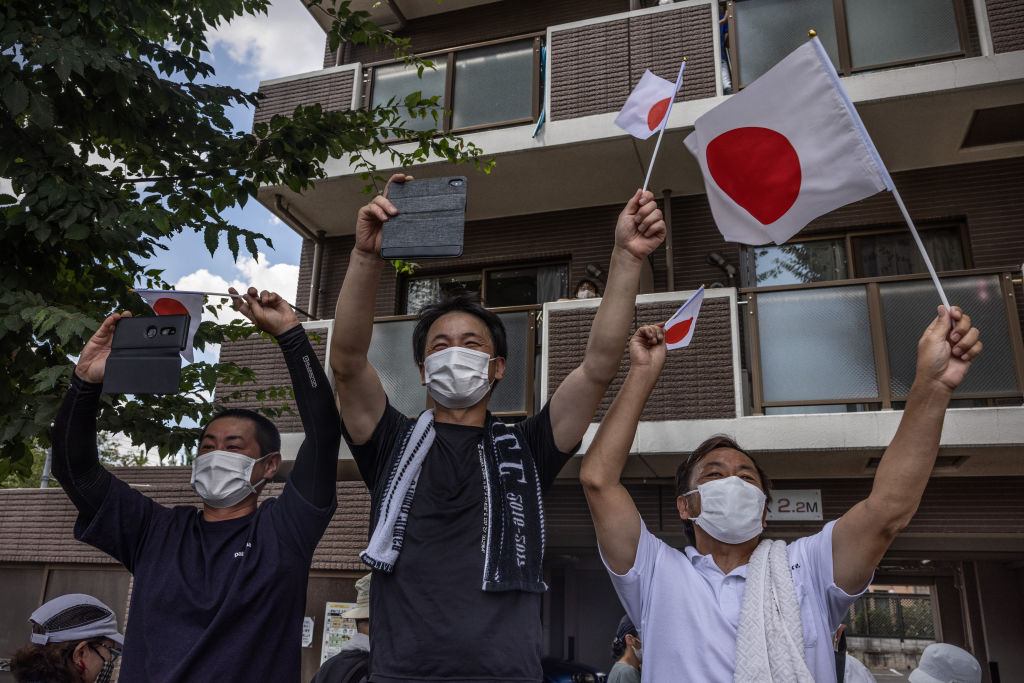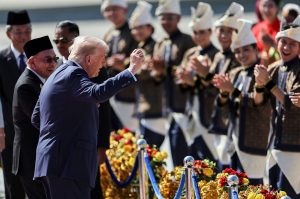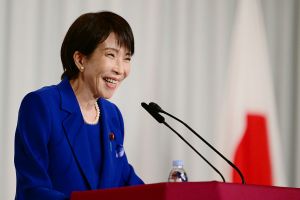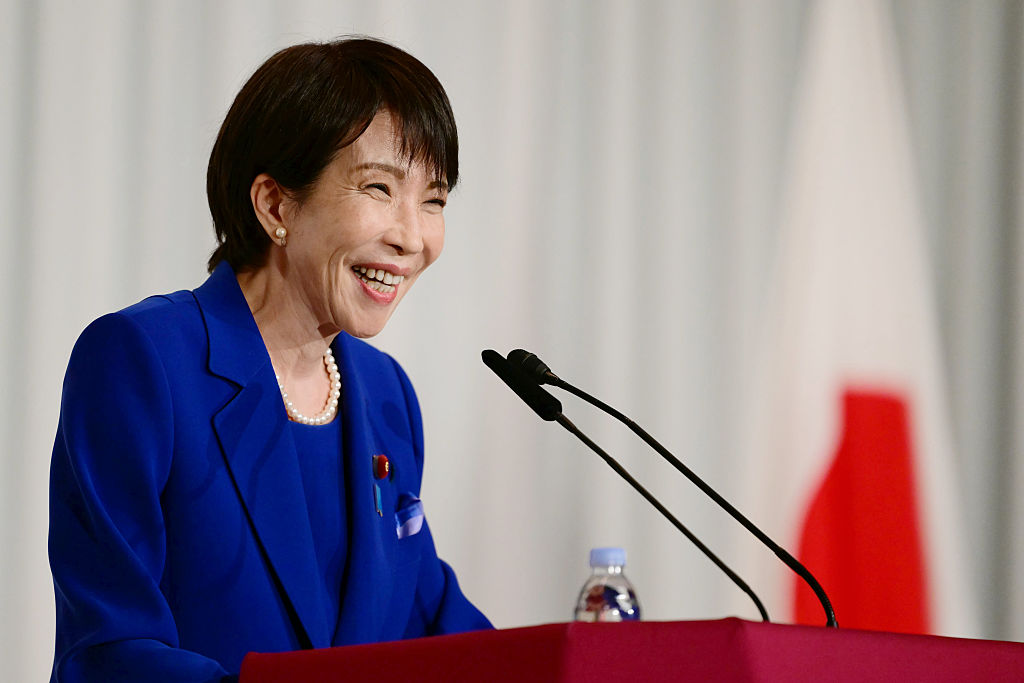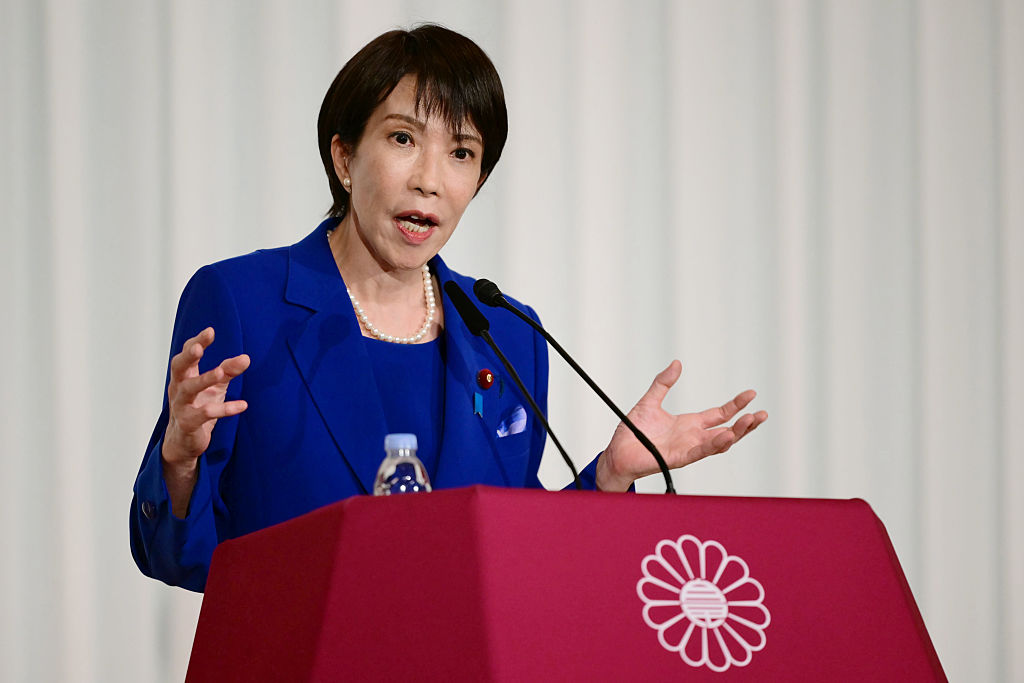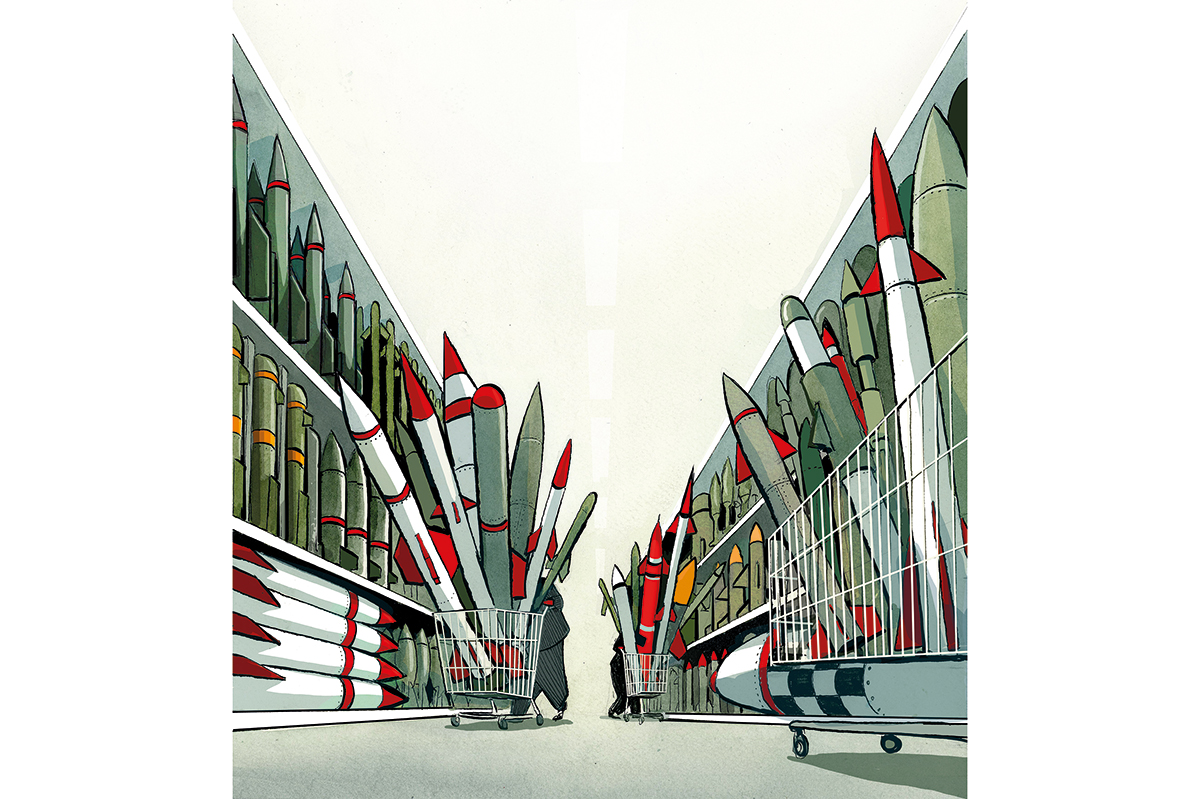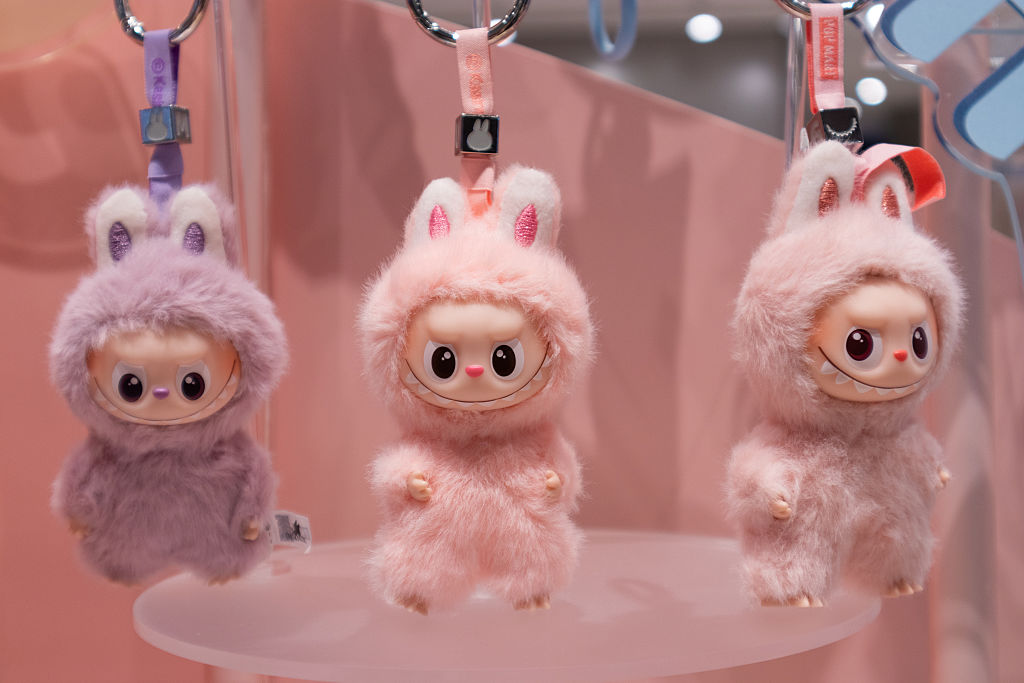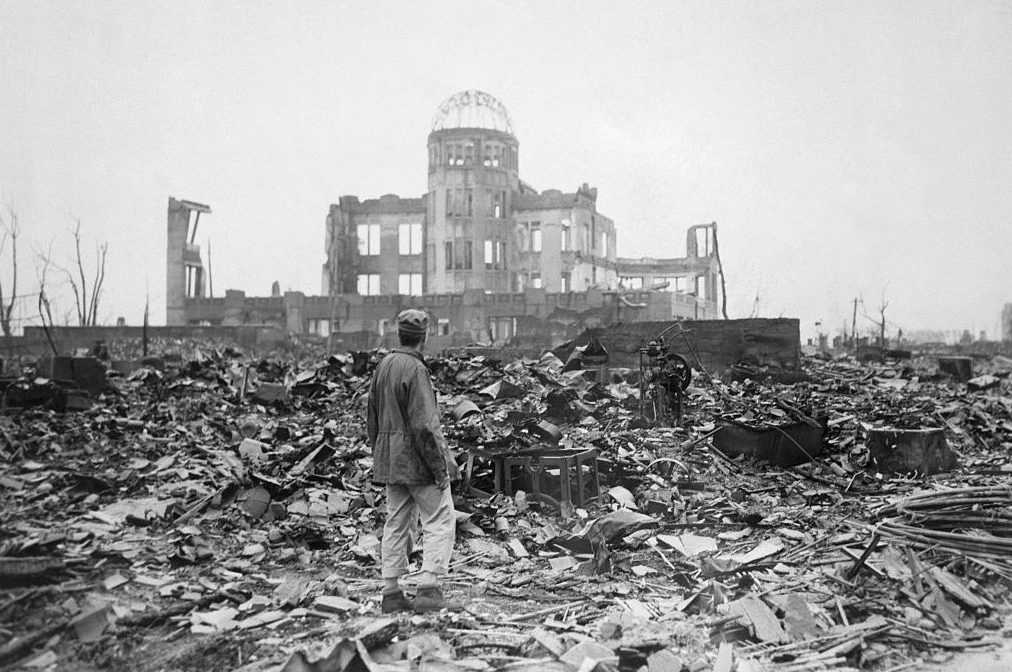Such gloom and negativity has surrounded the Tokyo Olympics that cynics were suggesting that, when the grand Olympic countdown clock outside Tokyo station finally reached zero at 8 p.m. on Friday, it should be reset — for August 8. That way we could all ‘count down’ the days until the whole damn thing was over. And then really celebrate.
But there are a few signs that the pessimistic mood may be shifting, albeit slightly. One indication was the thousands who gathered outside the Olympic stadium on Friday, as the opening ceremony took place inside. To the evident surprise of the battalions of police, who had cordoned off the arena and were clearly expecting serious trouble, only a very small number, were anti games protesters (I saw about 50). The rest seemed to be either genuine fans or just curious.
One small band of demonstrators positioned themselves outside Sendagaya station. They made a lot of noise, but didn’t attract much interest or support. Their main message seemed to be that an influx of foreign visitors will bring fresh pestilence and death, though since all athletes and their entourages will be tested before they set off for Tokyo, and repeatedly thereafter, and will be kept on the tightest of leashes while in the country, this does seem somewhat alarmist.
I stood and watched them for a while, until approached by an earnest middle-aged Japanese man, who I’d noticed talking to other foreigners in the crowd.
‘Excuse me, you speak English? These people (the protesters) are racist people. Please ignore them. We Japanese do not blame foreigners for COVID. To cancel Olympics is overreaction. We want foreigners to come to Japan. Please enjoy Olympics.’
And then, and I kid you not…
‘Let’s be friends. Please give me a hug.’
We settled on a handshake.
Despite such warmth, there’s no doubt many Japanese do agree with the protesters. And they do have a point: much resentment remains and will linger on, aimed especially at the politicians, the corporate interests, and the quarantine-dodging blazerarti currently luxuriating in Tokyo swankiest hotel suites.
But the antipathy does seem to be weakening. The games are suddenly no longer a dismal prospect, but a living reality, and the country’s reputation as world-class hosts is suddenly on the line. An instinct to support the nation, and put on a good show for the watching world seems to be kicking in.
And the Japanese prize the virtues of patience and endurance (‘gaman’) and there has been plenty of that displayed by the athletes, and the volunteers, and the medical staff, and all the other poorly paid minions who have kept the show on the road. That, at least, is worth supporting.
The protesters knew the game was up, and having failed to get the evening’s entertainment canceled, their energy seemed to drain away and they disappeared into the night. I joined the generally cheerful throng, which gathered as close to the stadium as the security allowed (about a javelin throw’s length) to take selfies, cheer as the occasional insider gave us a wave, and enjoy the fireworks and the spectacular drone display that came at the culmination of the ceremony. It was all very strange, but communal, and rather fun; perhaps more fun than being inside.
The opening ceremony, when I finally got to see it on TV later, was, at times farcical, but for the most part just dull. This is unsurprising given that the event’s music director and two artistic directors have been fired for a variety of bizarre offenses, the latest victim being Kentaro Kobayashi — for making a ‘Holocaust joke’ 23 years previously.
One rare moment of amusement came when, after the seemingly interminable parade of nations, the assembled athletes and performers broke into a rendition of the John Lennon song ‘Imagine’. Watching hundreds of athletes waving their national flags — at no one, while singing ‘imagine there’s (sic) no countries’ seemed to sum up the whole incoherent daftness of the occasion.
But it was the speeches that produced the most interesting reaction. IOC President Thomas Bach and Tokyo Olympic Chief Seiko Hashimoto hit exactly the wrong note, droning on platitudinously, and boringly, for a combined total of 20 minutes — far too long. Japanese prime minister Yoshihide Suga and Tokyo governor Yuriko Koike appeared to be asleep.
The Japanese emperor though, unaccompanied by Empress Masako (a statement in itself) got it exactly right. He spoke for precisely 13 seconds, saying virtually nothing but somehow saying all that needed to be said. ‘I declare these games open’ would be a fair summary of his haiku-length contribution.
The subtext of which appears to be: not everyone wants this, but it’s happening, so let’s make the best of it.
This article was originally published on The Spectator’s UK website.



